Mozambique: Attack on Mondlane ally 'political intolerance' - parties
Mozambique’s Mondlane open to 2029 presidential run if Anamola decides
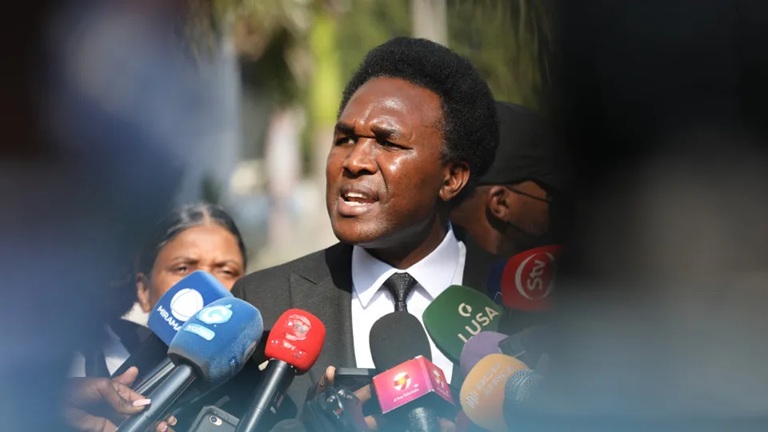
FILE - For illustration purposes only. [File photo: Lusa]
Politician Venâncio Mondlane, who ran for president in the 2024 elections, says Mozambique is in a “calamitous situation” one year on, and acknowledges he will run again in 2029 if Anamola, the party he founded, decides so.
“We now have a party that is approved and has already held two important statutory meetings – the Executive Committee meeting and the National Council meeting,” Mondlane said in an interview with Lusa, recalling the launch in September of the National Alliance for a Free and Autonomous Mozambique (Anamola), the party he founded and currently chairs on an interim basis until its congress on 20 June 2026.
“It is that [2026] congress which has the responsibility, first, to elect the party leader and then, naturally, to define the party’s political and electoral strategy. So, at that time, we will see what the party members decide about this,” he added.
One year after the general elections of 9 October 2024, Mondlane – who never accepted the official results and led the largest wave of popular protest in Mozambique’s multiparty democracy – says that “democracy and human rights are at their most problematic stage in the country’s history.”
“The country is practically bankrupt, on the verge of failure. The social indicators are visible to all. Education and health are a complete disaster,” he said, adding: “Mozambique, one year after the elections, is in a truly calamitous situation. It is sliding further into the abyss. All indicators show that the country is in permanent deterioration.”
Presidential candidates can be supported by political parties, as was the case with Podemos, previously an extra-parliamentary group that became the main opposition party after supporting Mondlane’s 2024 presidential bid. That relationship ended this year when Mondlane moved forward with the creation of his own party.
In July, the politician – who has since taken office as a member of the Council of State – was charged by the Mozambican Public Prosecutor’s Office with five crimes related to the post-election demonstrations, including incitement to collective disobedience and instigation of terrorism, charges he denies.
“At the moment I have volunteer lawyers from Portugal, Angola and Mozambique doing excellent work. They filed objections to those accusations of crimes against state security and to those absurd civil compensation lawsuits. So, they’ve done a great job. I expect this team will also do well in case of attempts to disqualify me [from running in 2029] by using the law, or by manipulating the law,” Mondlane said.
Mozambique is expected to hold municipal elections in 2028 and general elections in 2029.
Still, Mondlane says that “manoeuvres do exist, and they are not new”, stressing that preparation involves having “a strong legal team.”
“They have always had problems with me as an opponent. Remember that in 2018 I wanted to run for the Maputo municipal elections [he ran in 2023, for Renamo], and they did everything to block me because they knew they could not beat me. So, this already has precedents. It’s historical,” he said.
Around 400 people died in clashes with police during the post-election unrest, which ended after meetings between Mondlane and Mozambican President Daniel Chapo on 23 March.
Mozambique began, on 6 October, a public consultation at the local level on political dialogue for national pacification, which includes, among other matters, a new electoral model and a revision of the Constitution.
In April, President Chapo promulgated the Political Commitment for Inclusive National Dialogue law, approved in parliament days earlier based on an agreement signed on 5 March between the president and political parties to overcome the violence and social unrest following the general elections.
Mondlane’s party, however, was excluded from the process.
“It’s not a dialogue, it’s a simulation of dialogue. The most important force behind last year’s protests – the largest in the country’s democratic history – is being excluded from this same dialogue. This is the reality we face,” he criticised.
On 23 December, two and a half months after the vote, the Constitutional Council proclaimed Daniel Chapo the winner of the presidential election with 65.17% of the votes, followed by Venâncio Mondlane with 24%, a result he has never recognised.



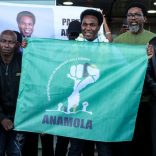
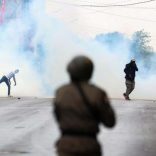
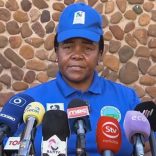
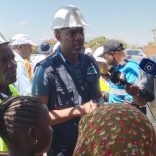
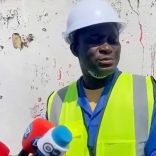





Leave a Reply
Be the First to Comment!
You must be logged in to post a comment.
You must be logged in to post a comment.